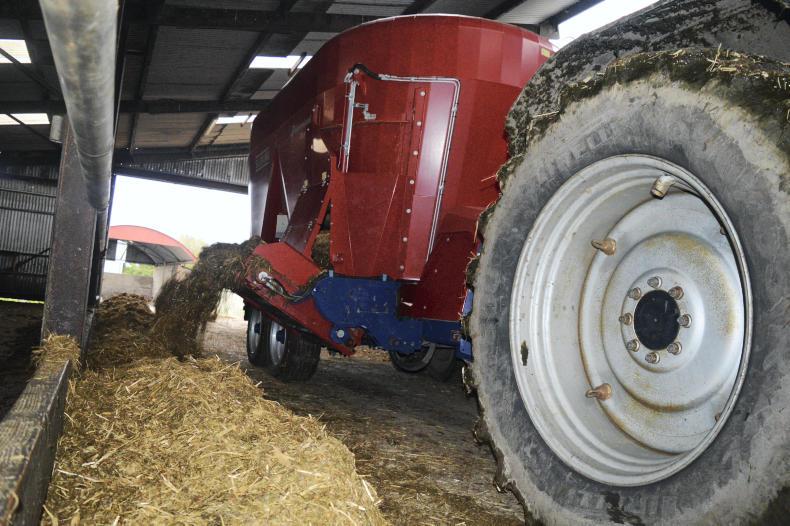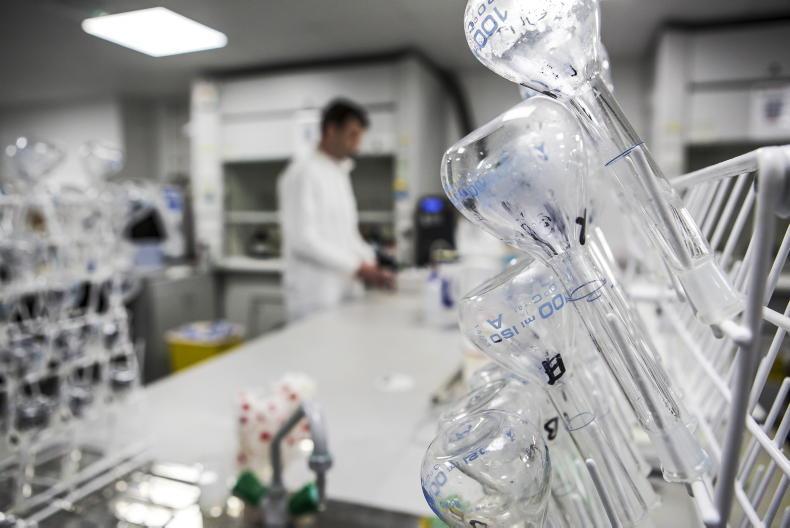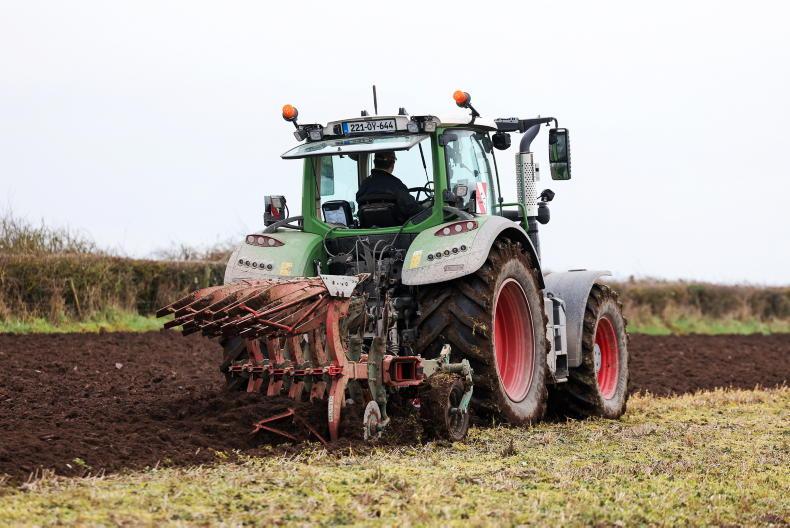Feeding high levels of locally grown field beans as a protein source can led to performance issues in early lactation dairy cows, a study by the Agri Food and Biosciences Institute (AFBI) has found.
Researchers at AFBI investigated the use of field beans as a partial substitute for concentrates that use imported protein sources. Field beans have a moderate crude protein level of 280g/kgDM and a high starch content of 400g/kgDM.
A previous AFBI study, where 4.7kg of field beans were included in the diet of mid-lactation dairy cows, found no adverse effects on performance.
However, a recent study of 70 early lactation dairy cows found that cows offered 8.4kg of field beans (equating to 70% of total concentrate intake) had lower butterfat and protein levels in milk, and lower conception rates. Cows on the high field bean diet averaged 4.13% butterfat and 3.22% protein, compared to 4.28% and 3.38% respectively for cows that were offered no field beans. The study found that the poorer milk quality reduced the value of milk by £0.80/cow/day.
AFBI researchers state that the reduction in butterfat can be attributed to the high starch content in beans, while the reduction in milk protein is more likely due to a shortage of specific amino acids (the building blocks of protein).
Researchers suggest that reduced milk protein levels could have been avoided by supplementing cows with specific amino acids, such as methionine. Aside from milk quality, cows on the high field bean diet also recorded a conception rate of 50% in the first and second service, compared to 62% in cows fed standard concentrates.
“The trend observed causes some concern regarding the inclusion of very high levels of beans in the diets of early lactation cows. It is recommended that field bean inclusion levels for dairy cows do not exceed 4-5kg,” AFBI researchers state.
Read more
Liver fluke does not impact TB – NI study finds
New genetic evaluations for TB and liver fluke resistance
Feeding high levels of locally grown field beans as a protein source can led to performance issues in early lactation dairy cows, a study by the Agri Food and Biosciences Institute (AFBI) has found.
Researchers at AFBI investigated the use of field beans as a partial substitute for concentrates that use imported protein sources. Field beans have a moderate crude protein level of 280g/kgDM and a high starch content of 400g/kgDM.
A previous AFBI study, where 4.7kg of field beans were included in the diet of mid-lactation dairy cows, found no adverse effects on performance.
However, a recent study of 70 early lactation dairy cows found that cows offered 8.4kg of field beans (equating to 70% of total concentrate intake) had lower butterfat and protein levels in milk, and lower conception rates. Cows on the high field bean diet averaged 4.13% butterfat and 3.22% protein, compared to 4.28% and 3.38% respectively for cows that were offered no field beans. The study found that the poorer milk quality reduced the value of milk by £0.80/cow/day.
AFBI researchers state that the reduction in butterfat can be attributed to the high starch content in beans, while the reduction in milk protein is more likely due to a shortage of specific amino acids (the building blocks of protein).
Researchers suggest that reduced milk protein levels could have been avoided by supplementing cows with specific amino acids, such as methionine. Aside from milk quality, cows on the high field bean diet also recorded a conception rate of 50% in the first and second service, compared to 62% in cows fed standard concentrates.
“The trend observed causes some concern regarding the inclusion of very high levels of beans in the diets of early lactation cows. It is recommended that field bean inclusion levels for dairy cows do not exceed 4-5kg,” AFBI researchers state.
Read more
Liver fluke does not impact TB – NI study finds
New genetic evaluations for TB and liver fluke resistance









SHARING OPTIONS